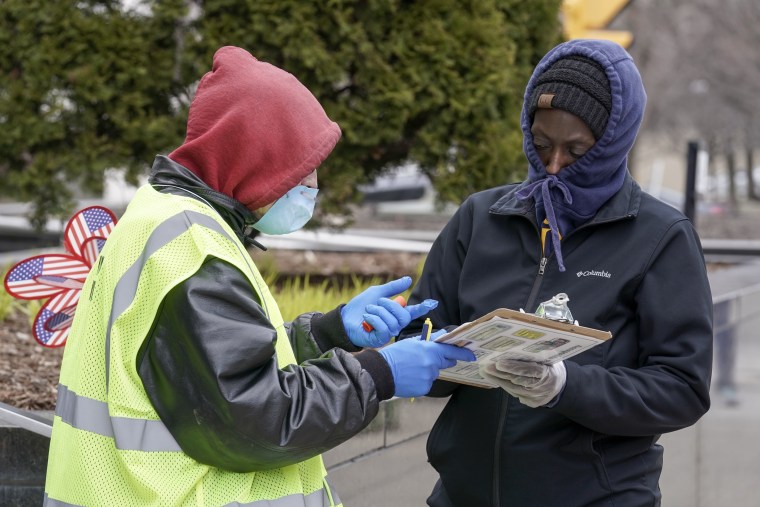WASHINGTON — Republican legislative leaders quickly rejected Wisconsin Gov. Tony Evers' call Friday to allow all registered voters in the state to receive an absentee ballot and have until May 19 to return them in Tuesday’s election amidst the coronavirus crisis.
The Democratic governor signed an executive order Friday to call for a special session of the GOP-controlled state Legislature to consider his proposed changes to the election, which includes both the Democratic presidential primary between Joe Biden and Bernie Sanders and a general election for municipal officers and the state Supreme Court.
"I can't move this election or change it on my own. My hands are tied,” Evers said during a telephone news conference. He said proceeding with the election without changes would be an “unnecessary public health risk.”
But in a joint statement, the Republican leaders of both chambers of the state Legislature accused the governor of flip-flopping on the election and said it should proceed as previously planned, quipping that “an election is just as important as getting take-out food,” which has continued during the crisis.
“Our republic must continue to function, and the many local government positions on the ballot must be filled so that municipalities can swiftly respond to the crisis at hand," Wisconsin Assembly Speaker Robin Vos and Senate Majority Leader Scott Fitzgerald said. "We continue to support what Governor Evers has supported for weeks: The election should continue as planned on Tuesday.”
For weeks, both Evers and the Legislature wanted the election to proceed, even as numerous other states moved their elections or switched to all vote-by-mail.
The move comes after a federal judge in Wisconsin on Thursday said he did not have the authority to postpone the April 7 election.
The judge did, however, order the state to accept absentee ballots that arrive as late April 13 and he later said the state could not release results until that afternoon.
The judge also lifted a requirement that absentee ballots be signed by a witness, which voting rights advocates argued could present problems for people who lived alone and need to remain isolated during the epidemic.
State officials have urged voters to cast absentee ballots by mail as poll worker shortages threaten in-person voting, but the increased demand for over 1 million ballots put strains on the election system.
Highlighting the impact of the poll worker shortages across the state, Milwaukee officials Friday announced just five in-person voting locations would be available on election day, down from the city’s usual 180 voting sites.
Staffing levels in the state’s largest city dropped from 1,400 workers to just 350 this year, officials said in a press release.
As the problems became more apparent, the state Democratic Party this week joined those calling for the election to be postponed, and Evers said he would have changed the election on his own if he could.
The Legislature, which has been in recess, is run by Republicans who want the election to proceed as scheduled.
The Wisconsin Republican Party almost immediately appealed the judge’s ruling to the 7th U.S. Circuit Court of Appeals, accusing him of circumventing the Legislature’s prerogative.
“Democrats asked the federal court to quickly rewrite our election laws, and while the court rejected nearly all of their demands, the court’s decision to change the date by which absentee ballots can be received without any limitation on the postmarked date effectively changes the date of the election,” state GOP Chairman Andrew Hitt said in a statement. “Such a substantial decision normally left to our elected officials requires.”
CORRECTION: (April 4, 2020, 10:45 a.m. ET): An earlier version of this article mischaracterized a federal judge’s ruling regarding Wisconsin’s primary on Tuesday. The judge said ballots will be counted as long as they are received by April 13; he did not say they must be postmarked by election day.


